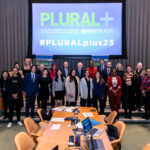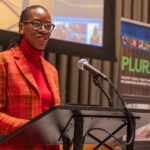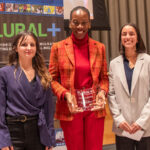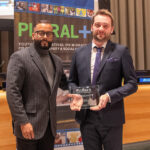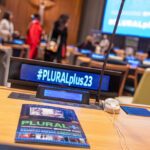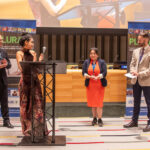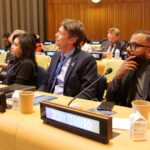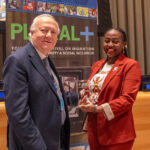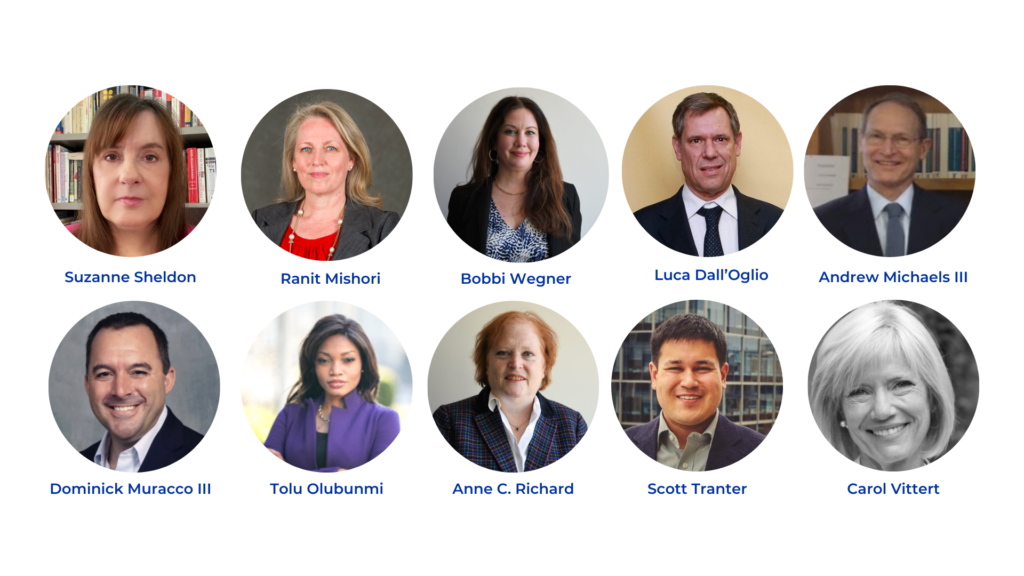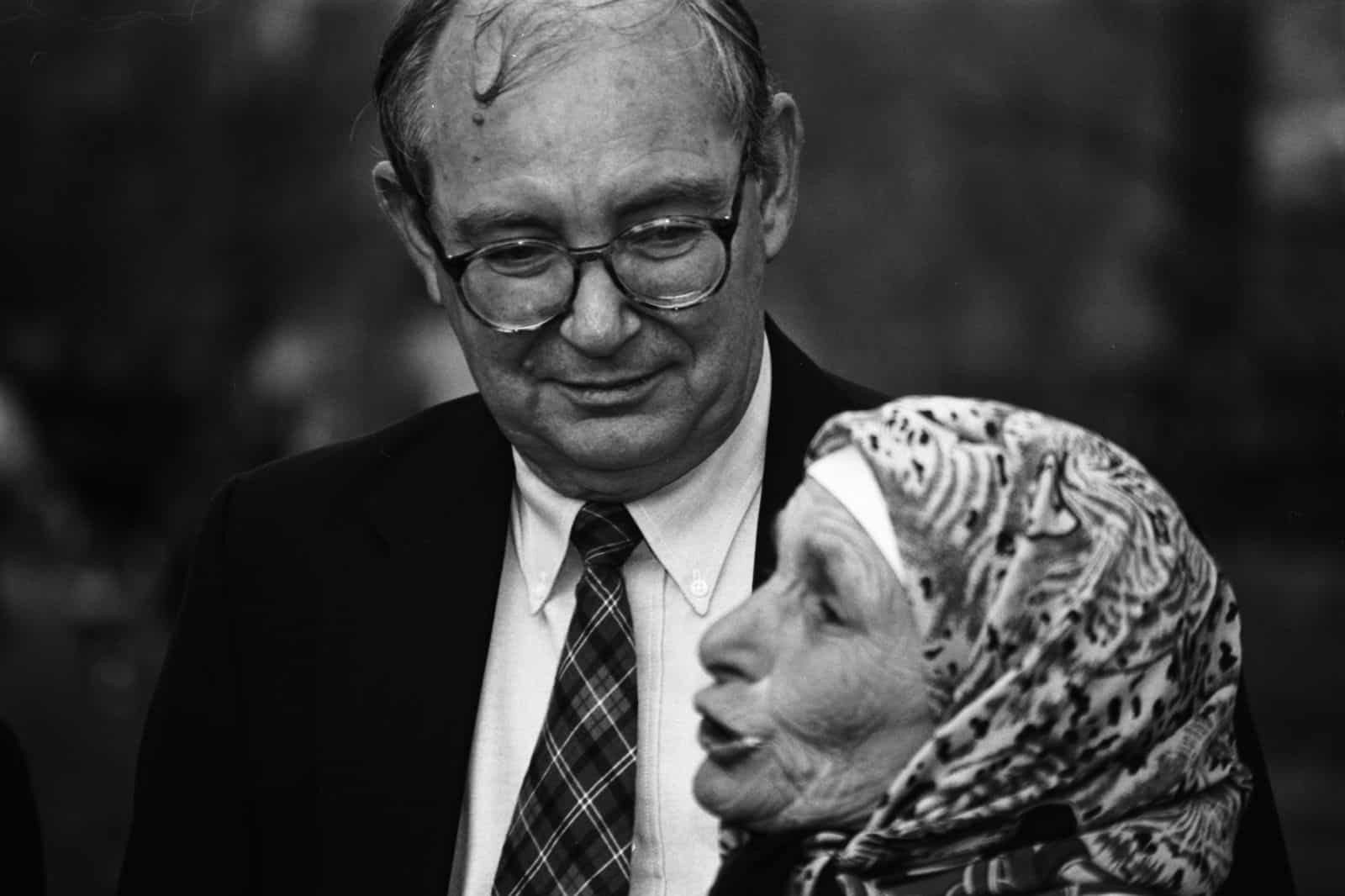
- admin
USA for IOM mourns the passing of its former chairman, Mr. James N. Purcell Jr.
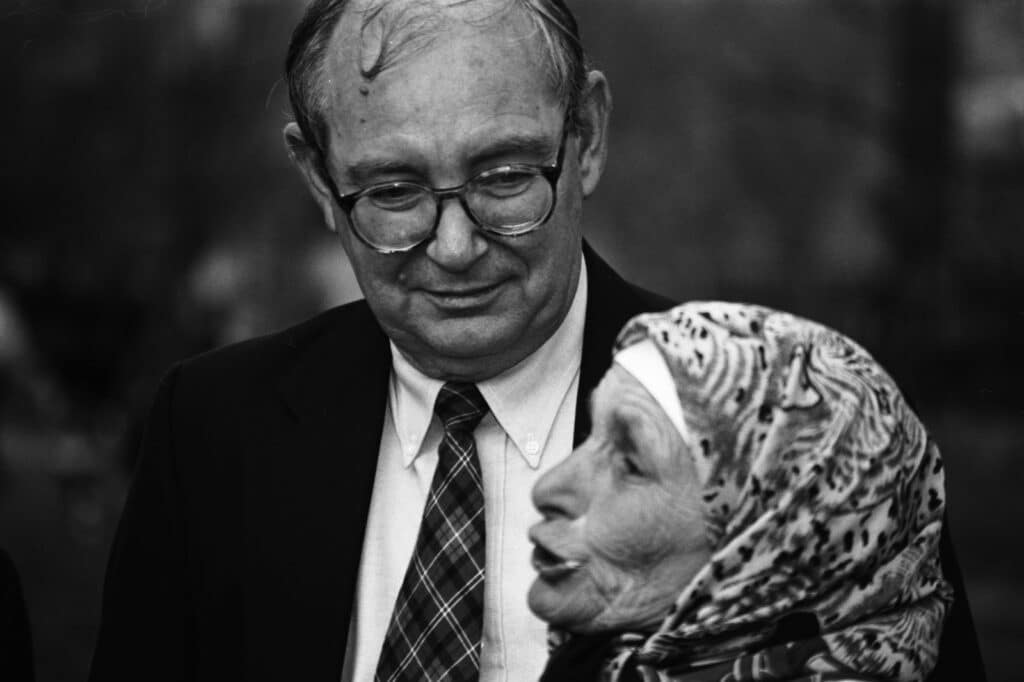
Mr. Purcell dedicated his career to championing the United States Refugee Admissions Program as well as multilateral cooperation on migration issues across the globe. He served as US Assistant Secretary of State for Population, Refugees, and Migration Affairs from 1983 to 1986 and then as Director General of IOM from 1988 to 1998.
Mr. Purcell was actively involved in the leadership of USA for IOM for more than three decades, including as Chairman of the Board, a role from which he retired from in 2022.
He took immense pride in USA for IOM’s growth in leveraging the value of U.S. private sector and capturing the American people’s interest in humanitarian affairs and IOM’s mission to uphold the dignity and rights of migrants worldwide.
Recognized as a mentor, leader, humanitarian legend and advocate for migrants until his last days, he will be sincerely missed.
“Throughout Jim’s long and storied career, he was a tireless advocate for migrants and refugees,” said IOM Director General Amy Pope. “Long after he left IOM, he continued to lend his voice to support in the United States for the work of IOM, including as Chairman of the Board of Directors for USA for IOM. I will always be grateful for his counsel to IOM and to me personally, and for his kindness.”
James N. Purcell Jr. authored the book “We’re in DANGER! Who Will HELP Us? Refugees and Migrants: A Test of Civilization” (2019). The book is a history of events and teamwork among members of the U.S. State Department’s Bureau of Refugee Programs and its protection and resettlement programs, domestic and with international cooperation.

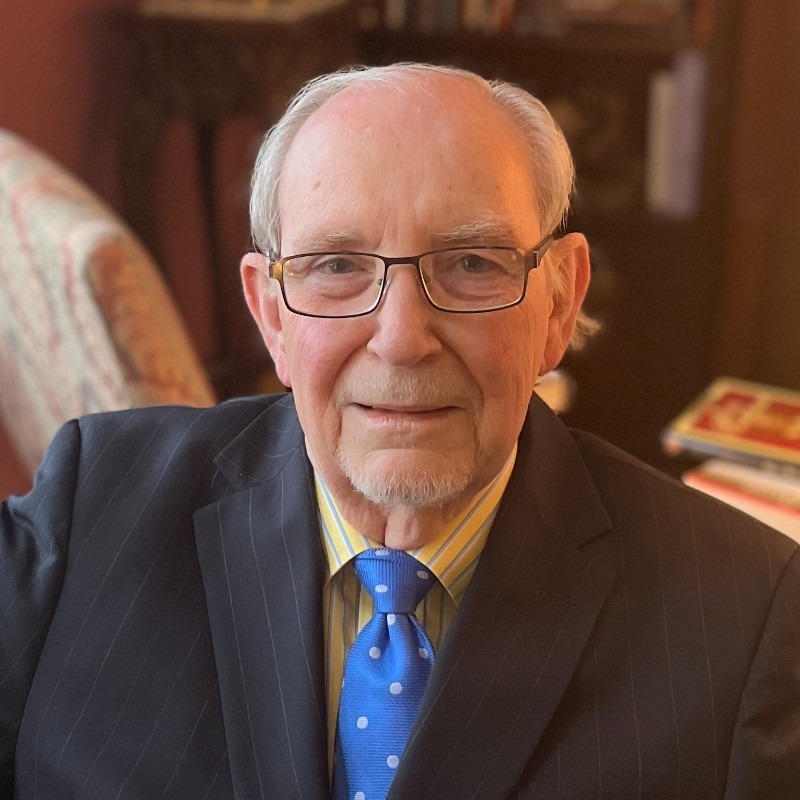
At the request of Mr. Purcell’s family, fulfilling his wish, in his memory donations can be made to USA for IOM to support its mission to raise awareness about our global priorities: climate change, poverty, conflict, counter-trafficking, and the socio-economic integration of migrants.
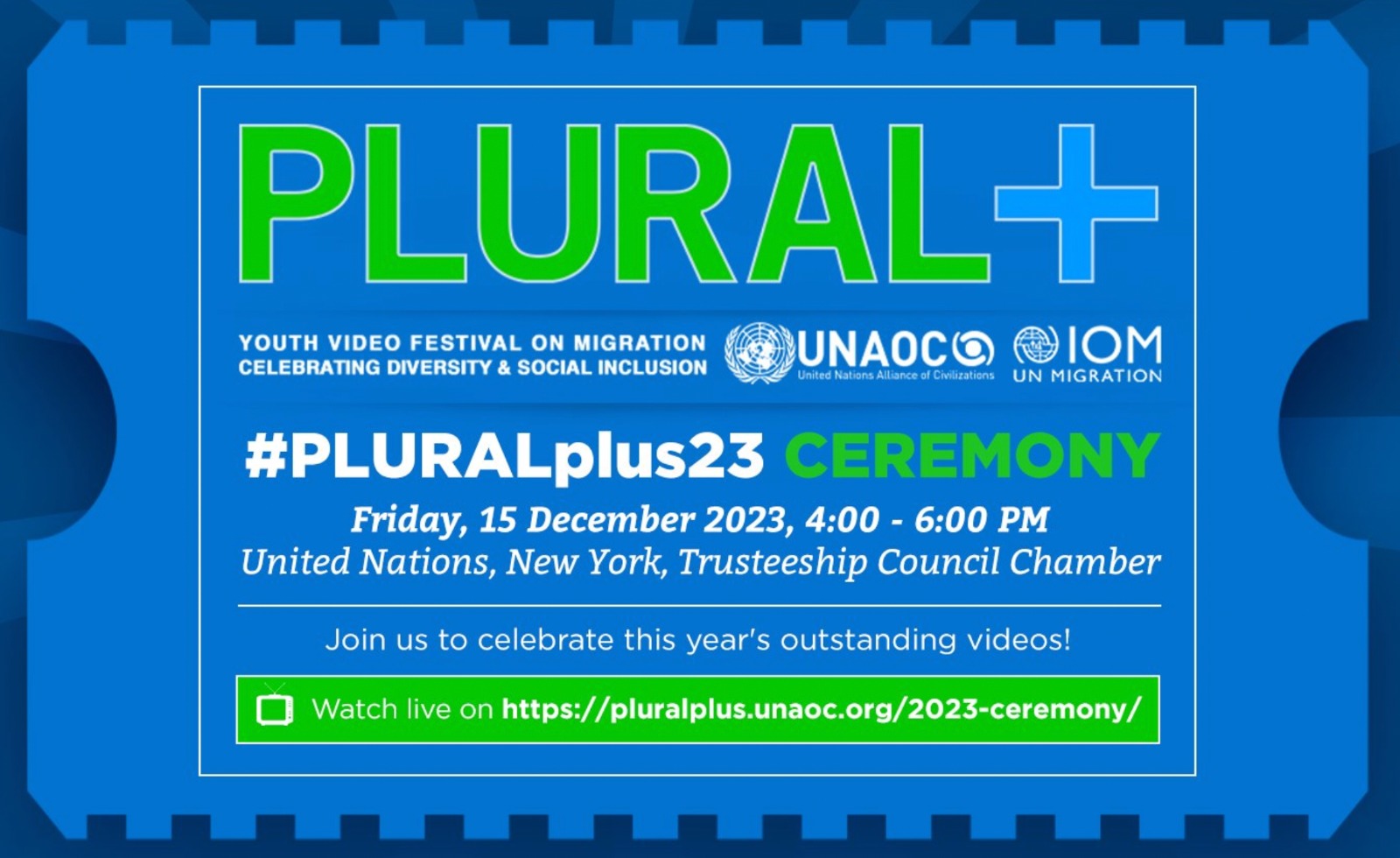
- admin
The UN’s PLURAL+ Youth Video Festival Recognizes Videos of Outstanding Young Filmmakers in its 2023 Ceremony
New York — On Friday, 15 December, the United Nations Alliance of Civilizations (UNAOC) and the International Organization for Migration (IOM) announced the 2023 recipients of their joint initiative, the PLURAL+ Youth Video Festival, during an annual ceremony that took place at the United Nations Headquarters in New York.
A total of 24 films from 18 countries were selected for distinctions by UNAOC and IOM as well as 20 partner organizations based on their powerful and thought-provoking impact related to the themes of migration, diversity and social inclusion. The films originated from Belgium, Brazil, Republic of Cameroon, France, Germany, Guatemala, Iraq, Kenya, Mexico, Nigeria, Pakistan, Peru, Philippines, Republic of Korea, Spain, United Kingdom, United Republic of Tanzania, and the United States of America.
During his welcoming remarks, Mr. Miguel Ángel Moratinos, Under-Secretary-General and High Representative for UNAOC, emphasized how PLURAL+ has become a global platform for fostering the humanistic values of “empathy, understanding, compassion, respect and human dignity…”
“PLURAL+ has a soft spot in my heart. I love all forms of human expressions, especially those expressed through film. Filmmaking is the extraordinary alchemy of capturing emotions, weaving stories and most of all shaping perspectives. It’s the magical realm where the power of imagination meets the art of creation,” he said.
Meanwhile, Ms. Ugochi Daniels, IOM’s Deputy Director-General for Operations, praised the young recipients of the 2023 edition of PLURAL+, reminding youth worldwide of the pluralism that defines us and the strength that comes from our differences.
Applauding young filmmakers for creatively addressing the topics of migration and the contribution of migrants into society, social inclusion, diversity and the combating of xenophobia and discrimination, Ms. Daniels noted that “Each film encapsulates a unique perspective, a tale, or a message that transcends boundaries. These short films are not merely cinematic creations; they are powerful narratives that ignite conversations, foster empathy, and challenge our perceptions of the world,” she added.
“Art is the language of connection,” reflected Jessy Terrero, one of the International Jury members. at the USA for IOM reception celebrating the 15th edition of the PLURAL+. “I was not happy playing parts that reinforced negative stereotypes on the screen and I did not see people who looked like me on the set. That realization is what inspired me to become a filmmaker,” he added, inviting PLURAL+ recipients to continue using art and challenge stereotypes.
The young filmmakers selected for their outstanding videos were honoured and acknowledged in the presence of UN officials, youth stakeholders, as well as representatives of media and civil society.
The recipients of the PLURAL+ 2023 International Jury Recognition (Up to 12 Years Old Category) were represented by Mr. Bastein Martin from Belgium for their short film “Bob le Petit Éléphant”, which tells the story of an elephant named “Bob” who wonders why he is so small and why nature has given him such a long trunk.
Ms. Yein Han from the Republic of Korea was the recipient of the PLURAL+2023 International Jury Recognition (13–17 Years Old Category) for her short film “Letters from Us” that captures the sacrifices made by migrants and their families when they move away from their homelands.
The recipient of the PLURAL+2023 International Jury Recognition (18–25 Years Old Category), Mr. Taleabong Boris Alemnge from the Republic of Cameroon, was acknowledged for his spoken word film “Arts and Arms”, which calls for an inclusive and peaceful settlement of grievances through diplomacy as opposed to armed conflict.
The recipients of the PLURAL+2023 Special Recognition for Combating Xenophobia and Discrimination were represented by Mr. Thiago Gomes from Brazil for the music video “Eu Não Sou Bandido”, which depicts the realities of many who suffer racism and xenophobia every day.
Tai Tanzania from the United Republic of Tanzania, represented by Ms. Nuria Madawili, was the recipient of the PLURAL+2023 Special Recognition for Sport for One Humanity for the short film “Najiamini”, which aims to raise awareness about the challenges faced by students with physical disabilities.
The recipients of the PLURAL+2023 Special Recognition for Migrants Contributions to Societies were represented by Ms. Manon Sabrier-Gesrel from France for a short film “Derrière les Mots”, which underlines that behind the prejudices, stereotypes and words associated with migrants, there are real individuals with stories, aspirations and valuable contributions to make to society.
All of the PLURAL+ videos are now available online on the PLURAL+ website and will be disseminated worldwide. To view the selected videos, please visit: https://pluralplus.unaoc.org/plural2023/
During the reception, The Entrepreneurship in Movement program, supported through the Citi Foundation, was highlighted, sharing inspiring efforts of migrants in Peru and Ecuador who benefit their communities through their businesses.
Should you have any questions, please contact Ms. Rahma Soliman, Media and Communications Officer at IOM Office to the UN, rsoliman@iom.int or +1-212-681-7000 (ext. 210) and Mr. Dogan Asik Strategic Partnerships Consultant at UNAOC at dogana@unops.org or +1-212-963-7158.
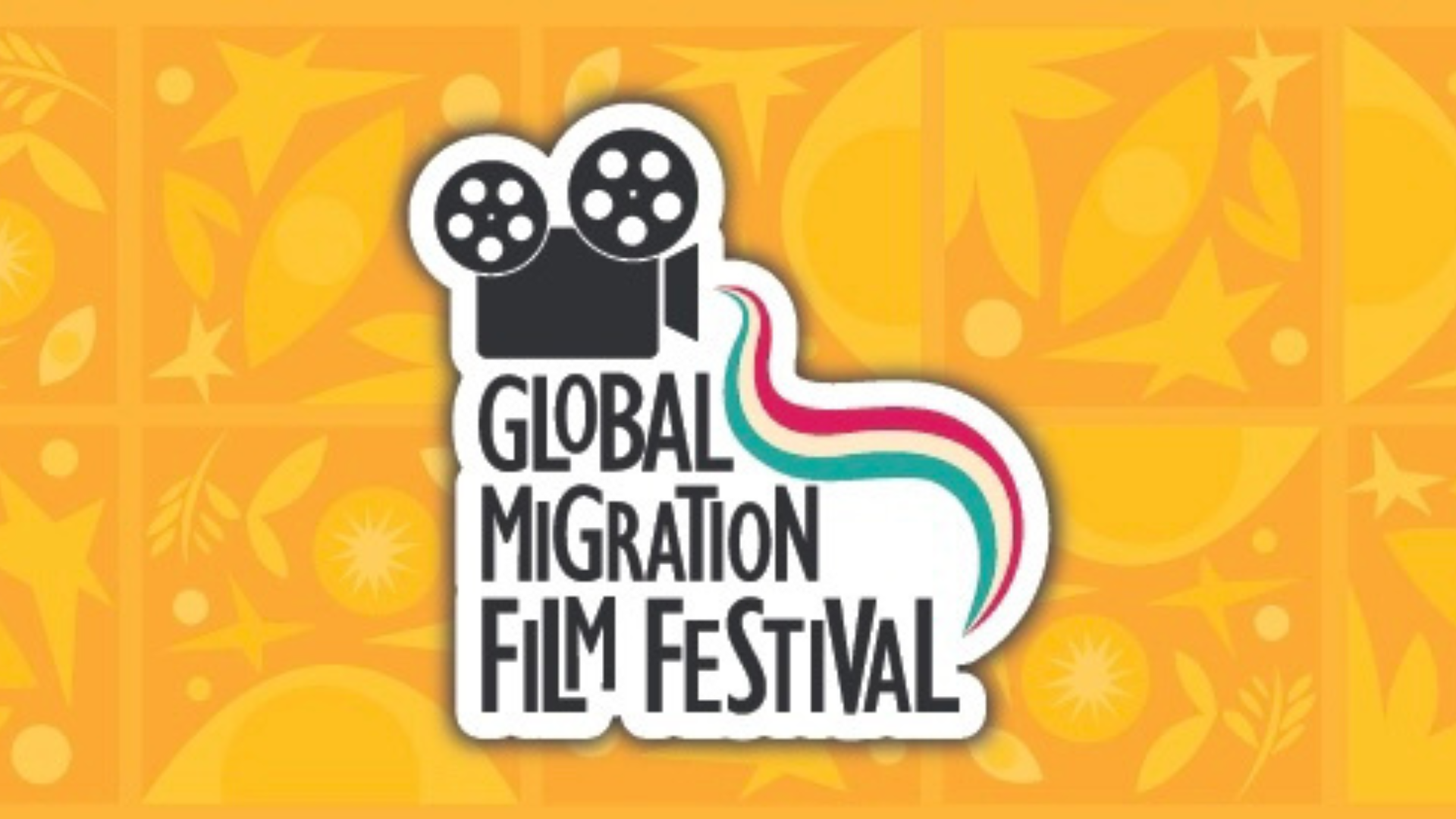
- admin

First ever cross-border film festival to spark essential migration conversations
Both Northern Mexico and Southern Texas face unprecedented migration challenges. Finding innovative ways to build understanding and to create solutions across borders is critical. This November, IOM Mexico joins with USA for IOM in presenting the first-ever Global Migration Film Festival (GMFF) to be hosted in both Mexico and the United States.
The groundbreaking event will take place in El Paso, Texas, with the collaboration of the Consulate General of Mexico in El Paso on November 15th at the Philanthropy Theater / The Plaza Theater at 5:30 pm. The feature movie, “Home is Somewhere Else,” is written and directed by Carlos Hagerman and Jorge Villalobos. The film shares three heartwarming stories of young people sharing their fears and hopes of living in the United States, told through animation and featuring the actual voices of the migrants behind the stories. The event is free and open to the public. After the screening, there will be a dialogue with IOM Chief of Mission Dana Graber Ladek and film director Jorge Villalobos on the significance of empathetic narratives about migrants.
“Through the GMFF, we aspire to honor and celebrate the genuine contributions migrants make to receiving communities. Films have the power to humanize migrant stories and to help people think about them as agents of positive change,” says Dana Graber Ladek, IOM Chief of Mission in Mexico.
The El Paso event is part of a multi-day Global Migration Film Festival (GMFF) hosted by IOM Mexico, which includes eight films to be shown in 14 cities around Mexico. The festival is co-sponsored by USA for IOM. IOM has been organizing Global Migration Film Festivals across the world since 2016. The main objective of these festivals is to leverage the power of cinema to enhance people’s understanding of the migration process and to counteract hate speech and xenophobia directed towards migrants.
For more information please contact:
In Mexico, acabezas@iom.int, +52 55 4525 8361
In the USA: Stacey Cohan, scohan@iom.int, + 1 202 445 9344
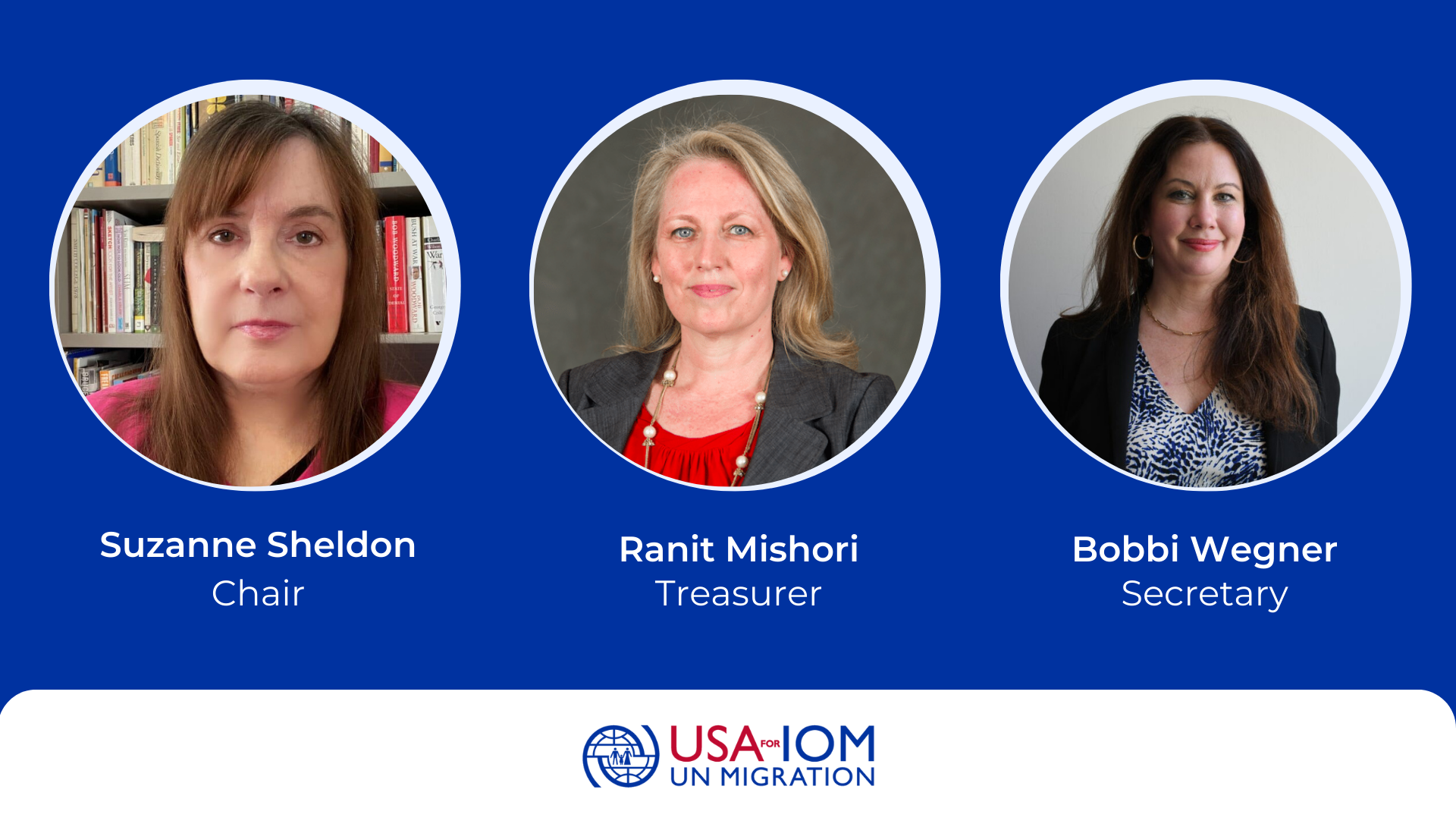
Election of USA for IOM Board Officers
- admin
Election of USA for IOM Board Officers
USA for IOM announces the appointment of our new Board Officers who will guide our nonprofit organization into its next chapter to further enhance awareness and spur action and investment for migration initiatives. The role, vision, and insights of our Board Members are pivotal to forward the USA for IOM mission, both in governance and financial stewardship.
USA for IOM celebrates the appointment of:
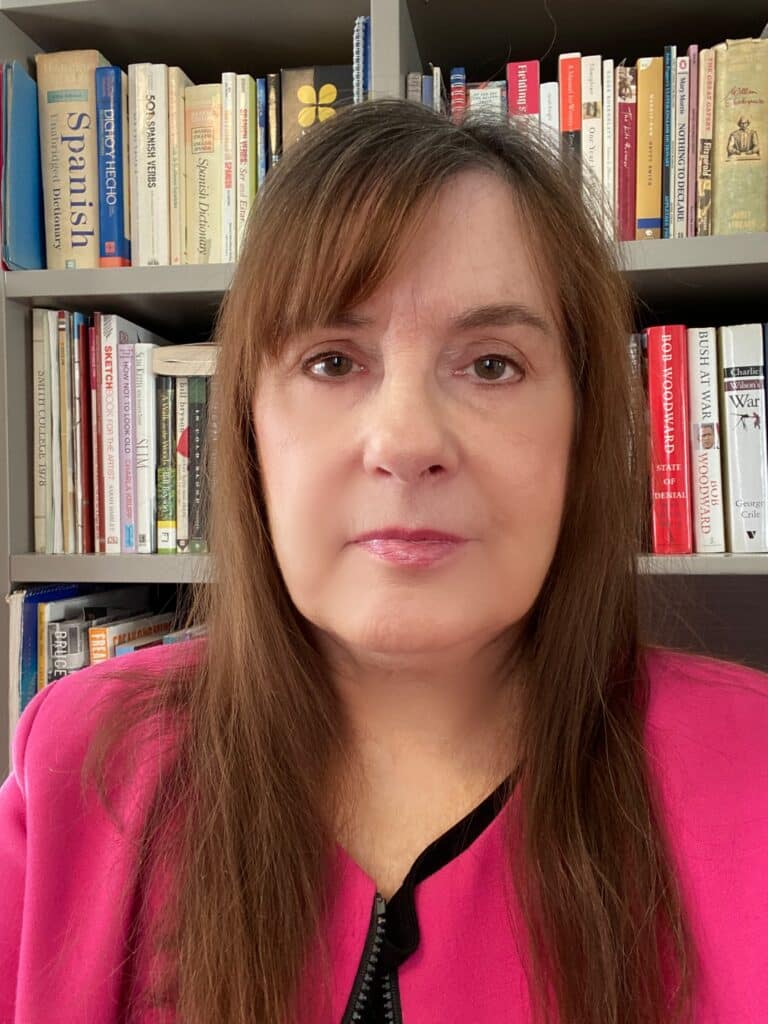
Chair of the Board of Directors, Suzanne Sheldon, was voted in by fellow Board Members. Suzanne Sheldon is a diplomat, lawyer, rule of law and migration policy expert, and Senior Advisor at the U.S. Department of State. Her work has included U.S.-supported life-saving assistance to refugees and vulnerable migrants and leading the team in IOM’s New York office (2017-2019) that supported UN member states on the Global Compact for Migration. She will become the Chair effective November 1st, 2023.
Treasurer of the Board of Directors, Dr. Ranit Mishori, is a recognized physician leader and health expert, working at the intersection of medicine, public and global health and human rights. With expertise in the health consequences of conflict and forced migration, she is a scholar on issues related to migration and health. Dr. Mishori currently serves as Georgetown University’s Vice President and Chief Public Health Officer. With her experience in overseeing budgets, and handling financial responsibilities while serving on multiple boards, she is well qualified for the Treasurer position
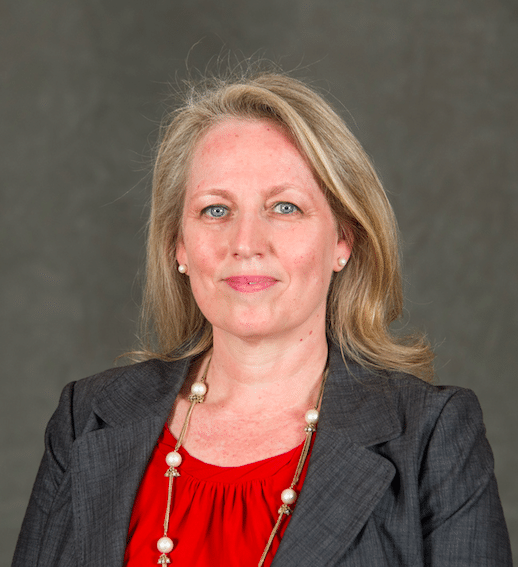

Secretary of the Board of Directors, Dr. Bobbi Wegner is an experienced psychologist, international speaker, author and advisor focused on helping individuals and organizations feel and work their best together. She is the founder and CEO of Groops which brings experts in group and organizational psychology to the office on an affordable, subscription basis to be accessible to teams across the organization. Dr. Wegner also teaches Motivation, Groups and Culture, and Applied Coaching at Harvard University.
USA for IOM expresses gratitude for the dedicated service of Luca Dall’Oglio who served as Chair of the Board of Directors. He is a retired international civil servant who worked with IOM for more than 30 years, most recently serving as Chief of Mission at IOM Washington.
We also want to thank Peter Schatzer, Permanent Observer of the Parliamentary Assembly of the Mediterranean to the UN (Vienna), and long-standing Board Member of USA for IOM, for his service to the Board for more than 12 years. The Board and the entire USA for IOM team extend gratitude for his dedicated service and commitment towards our mission. He previously served IOM for 24 years in various leadership positions.
USA for IOM extends its gratitude to all of our Board Members, whose collective expertise and leadership greatly enhance our efforts, especially during these times of multiple global crises. As we welcome our Board Officers into their new roles, we acknowledge the weighty responsibilities they undertake. With full confidence, we believe their leadership will be instrumental to the continued growth and impact of USA for IOM.
In tandem with our recent significant expansions and our contributions to IOM’s pivotal priorities, we are also eager to grow our board further. Actively seeking new Board Members who resonate with our values and mission will infuse our organization with fresh insights and renewed energy. Their diverse experiences and commitment will be vital as we aim to address the world’s pressing challenges more effectively.
The USA for IOM Board of Directors
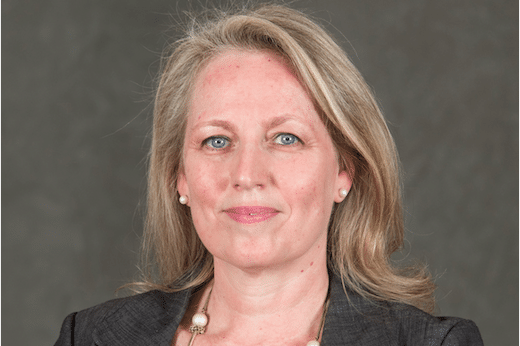
Welcoming Dr. Ranit Mishori, new USA for IOM Board Member
- admin
Welcoming Dr. Ranit Mishori, new USA for IOM Board Member

USA for IOM is proud to announce that Dr. Ranit Mishori has joined our Board of Directors.
Dr. Mishori is a recognized physician leader and health expert, working at the intersection of medicine, public and global health and human rights. With over two decades of experience and expertise in the health consequences of conflict and forced migration, she is a recognized leader and scholar on issues related to migration and health.
< Dr. Ranit Mishori
“As a granddaughter of refugees and a migrant myself, I feel connected in multiple ways to the experience of immigrants and displaced people in their home or host country (or somewhere in between),” said Dr. Mishori.
Dr. Mishori currently serves as Georgetown University’s Vice President and Chief Public Health Officer where she oversees the University’s response to the COVID-19 pandemic and other infectious diseases and public health emergencies. As a member of the senior leadership team she provides strategic advice and technical expertise to all units and divisions across all campuses.
Pre-pandemic, Dr. Mishori was deeply engaged in research, teaching, mentorship and clinical care as Professor of Family Medicine at the Georgetown University School of Medicine. She directed the department’s Global Health Initiatives for over 8 years, directed the Health Policy fellowship, established and directed the Health and Media Fellowship, and led Georgetown’s Practice-Based Research Network, among other academic leadership roles.
Dr. Mishori brings a social justice and human rights lens to all her professional pursuits. From an early start as a journalist covering wars and the plight of refugees for global news organizations, she has been focused on the far-reaching impact of conflict, and ways to relieve related suffering. She continues to report and write on health and medicine, publishing more than 300 articles in the popular media, and more than 80 peer-reviewed health-related articles. As a physician and advocate, she is widely recognized for her research on and work with forced migrants, torture survivors, asylum seekers and people affected by conflict-related sexual violence, particularly as Senior Medical Advisor at Physicians for Human Rights.
Dr. Mishori’s leadership roles are numerous. A Diplomate and a Fellow of the American Academy of Family Physicians – the largest single specialty professional organization in the US – Dr. Mishori has been a deeply engaged leader and advisor on initiatives spanning primary care, global health, human rights, population and community health for a multiple US-based and global organizations.
We extend a warm welcome to Dr. Mishori.

Female migrant leaders advocate for female migrants
- admin
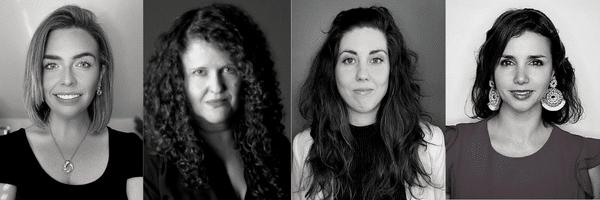
Female migrant leaders advocate for female migrants
The face of migration is changing. Over the last century, millions of people were forced to leave their countries of origin, with women following male relatives along the journey. Today, women outnumber men along most migratory routes, with many traveling alone. This makes them more vulnerable to the predatory forces along the
migration routes. This new scenario requires not only a profound reconstruction of the host societies, but also new perspectives will help provide more meaningful assistance and promote action.
To commemorate the International Migrants Day on December 18, USA for IOM held the first “Meeting of Migrant Women Leaders”, during which our CEO, María Moreno, spoke with global female leaders who left their country of origin. The event, moderated by the essayist and CEO of Architects of Happiness Nora Rodríguez, included the participation of Dr. Nadia Szeinbaum, Innovation Scientist at Beyond Meat, and former NASA fellow, and Liliana Mor, Director of Strategic Alliances and Development of Pro Mujer.
Hosting conversations with female leaders who themselves migrated is key to understanding the femiznation of migration. Dr. Nadia Szeinbaum discussed ways to better integrate migrant women into the host countries. “What I know about my culture,” she mentioned, “has a certain flavor, a very particular color that is Hispanic, Latin American, focused a lot on connecting with other people, on my music and my technical ability, so when I felt exposed to many cultures, I started learning from them. This allowed me to understand their codes, pay attention to details, and also learn to work from that place.”
For María Liliana Mor, Director of Strategic Alliances and Development of Pro Mujer, it is urgent to launch collaborative work between the countries to incorporate means and resources that make migratory routes safer places, but also to provide human accompaniment to make creation of new roots a common goal, for example, through supporting entrepreneurship for refugee and migrant women.
Both María Liliana and Nadia recognize the importance of a global talent characterized to a considerable extent by the impact that migrating had on their lives, characterized by the social sense, the commitment to personal values to advance in decisionmaking and a great adaptability and ability to connect with truly diverse people, which is a common denominator in most people who migrate.
The essayist and CEO of Architects of Happiness Nora Rodríguez, who moderated the event, and who works as a social mentor in the USA for IOM’s Entrepreneurship in Movement program, emphasized the importance of finding these skills and talents in each of the stories of women who migrate because they are the starting lines to build a new life in another place.
In closing, María Moreno urged both leaders, from their deep understanding of the fundamental values of the global community, from their own sensitivity to human and social needs, to share a message with migrant women directly. Both women agree that preserving cultural ties while working to build a new life is critical to success and mental health. “Your family is the world,” says Szeinbaum. “And I say this from personal experience,” adds the Director of Alliances for Pro-Mujer, “there are moments when you feel like you are someone else and you yearn for certain things. And a family doesn’t necessarily have to be a biological one.” Migration isn’t about severing connections, but rather about building new ones.
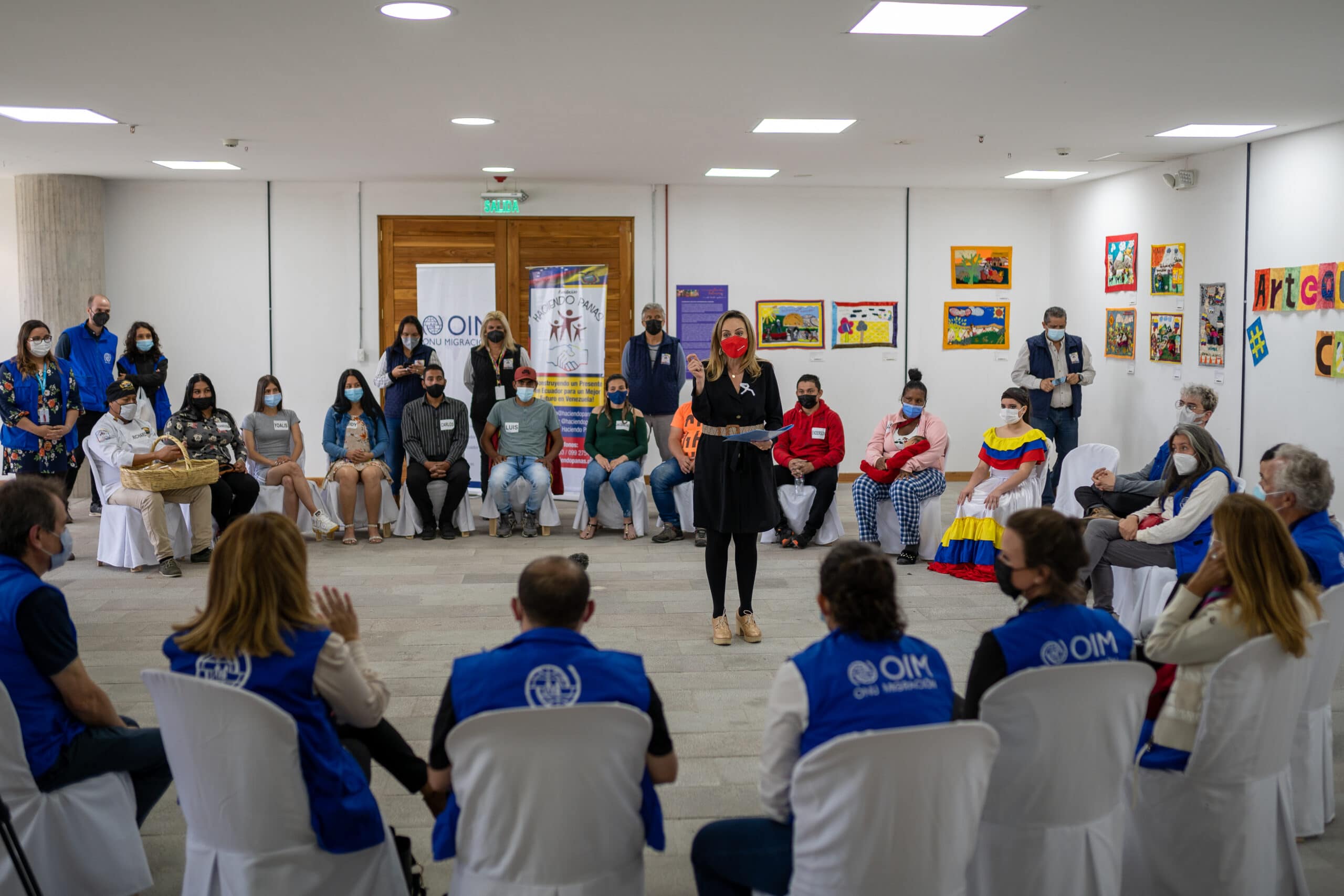
- admin
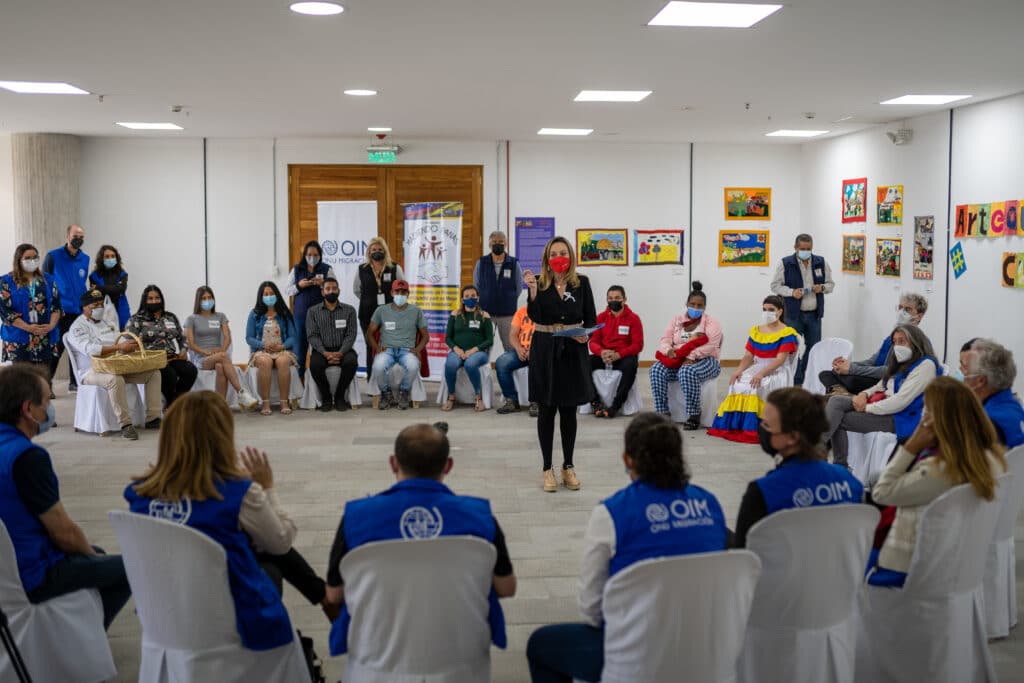
USA for IOM Launches Entrepreneurship in Movement at Summit of the Americas
Los Angeles – USA for IOM (International Organization for Migration) launched Entrepreneurship in Movement today, an innovative program aimed at expanding sustainable livelihoods and positive connections for migrants and refugees and their host communities across the Americas. The program builds on a collaboration between USA for IOM and the Citi Foundation that began in 2019 and aims to help refugees and migrants from Venezuela rebuild their lives with dignity and is currently being implemented in Ecuador and Peru, with the goal of expanding to countries in the Americas.
“Entrepreneurship should be part of the long-term solutions needed to address the consequences of large movements of displaced persons, in addition to the important measures that are put in place to cope with the immediate effects of humanitarian crises,” IOM Director General António Vitorino said during the program’s launch event on the margins of the Summit of the Americas.
The socioeconomic integration of migrants is integral to building a sustainable, resilient, and equitable future is the theme of this year’s Summit.
The Americas are witnessing the largest refugee and migrant movements in the region’s recent history. According to R4V, more than six million refugees and migrants from Venezuela have left their country of origin, with more than five million being hosted in the region. Many Venezuelans possess the skills to contribute to the local economy but struggle with access to employment. Entrepreneurship in Movement creates that access by providing training, social mentorship and coaching to help migrants create sustainable livelihoods through their businesses.
In addition, the Citi Foundation enables migrant entrepreneurs to access seed capital critical to turning their vision into reality. In Ecuador and Peru combined, nearly 700 migrant entrepreneurs have been trained, with more than 500 receiving seed capital for their businesses.
“For the past three years, the Citi Foundation has proudly supported the work of USA for IOM to empower vulnerable migrants and refugees through critical job training, education and entrepreneurship opportunities,” said Florencia Spangaro, Chief Operating Officer at the Citi Foundation. “Programs like Entrepreneurship in Movement help scale entrepreneurship training within the communities that need it most, and we look forward to seeing how it will support migrants and their families in achieving financial stability.”
Entrepreneurship in Movement also strengthens the local economy by launching new businesses in their host community, fostering job creation and social cohesion to fight against xenophobia and promote the shared value of diversity.

- Stacey Cohan
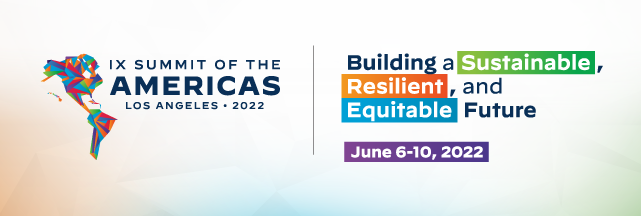
Empowering young entrepreneurs at Summit of the Americas
The 9 th Summit of the Americas begins June 6 th in Los Angeles, California. The focus is
“Building a Sustainable, Resilient an Equitable Future.” As world leaders work to build a
better future, we must engage the generation hoping to flourish in the future we are
trying to build.
Young people add their voices to the Summit of the Americas in the Sixth Youth
Americas Forum. USA for IOM CEO Maria Moreno engages with this critical audience
as the moderator of a panel focused on Supporting the Integration of Migrants in the
Americas on June 7 th . The purpose is to engage stakeholders across multiple sectors to support livelihoods, advance local development and create social cohesion between
migrants and host communities.
USA for IOM also plans to elevate our work as part of IOM’s Venezuelan response with
news about our Entrepreneurship in Movement program. The ongoing project, in
cooperation with Citi Foundation, works to assist Venezuelan migrants starting new
lives and new businesses in host communities. Maria Moreno explains, “We celebrate
the opportunity to highlight our “Entrepreneurship in Movement Program – EiM” as it
enters a third year. Investments like these are both aligned with the aims of this year’s
Summit and are key to promoting economic resilience and inclusive, peaceful, thriving
societies for all.”
The program mirrors the goals of this year’s Summit, striving to build a sustainable,
resilient, and equitable future for migrants and refugees. The VI Young Americas Forum is hosted and managed by the Young Americas Business Trust in partnership with the Organization of America States.

- Stacey Cohan
International Day of UN Peacekeepers: People. Peace. Progress. The Power of Partnerships
Each year on May 29th the United Nations honors UN Peacekeepers. This year, the UN marks the occasion under the theme “People Peace Progress: The Power of Partnerships.” USA for IOM honors those partnerships in highlighting the IOM Kenya’s peace building programs in Mombasa.

In March, USA for IOM visited the Kadzandani ICT Hub in a Mombasa sub-county. IOM began supporting the center in 2021 through the “contributing to sustainable peace” program. The goal is simple: give young people options and opportunities to prevent them from joining drug gangs or extremist groups. Through a partnership with Family Health Options Kenya, young people are taught life skills as they are mentored for the job market. Artistic talents flourish with audio/visual training and performances. The center is a safe space and has connected youth and parents with a path away from the false promise of easy money from gang recruiters.
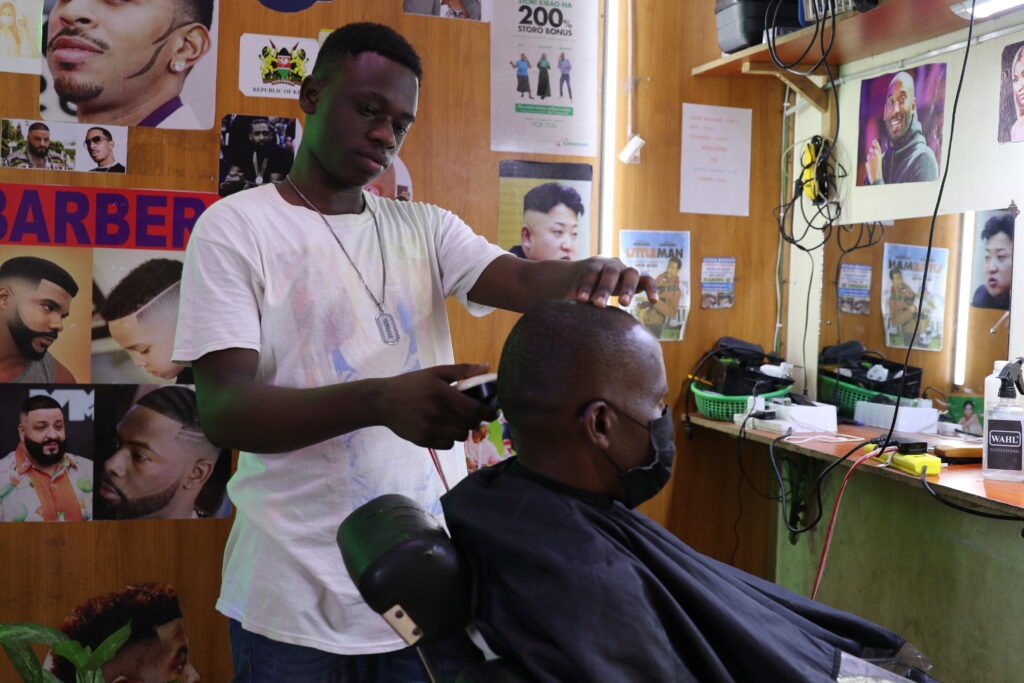
In a more urban part of Mombasa, IOM established the Majengo Yourh Resource Center in 2016 with the support of the German government, The Kenyan Government considers Majengo a hot spot for youth radicalization and recruitment by the violent extremist group Al-Shabaab. Local youth are trained in beauty, tailoring and computer skills. It is a fully operational center providing real services to the community while giving young people work experience and options for their future. The result is fewer young people joining gangs.
This May 29th, USA for IOM celebrates the power of collaboration between civil society organizations, local government, clergy, grassroots initiatives, and IOM. Today, we thank all those who work with us in the pursuit of peace.
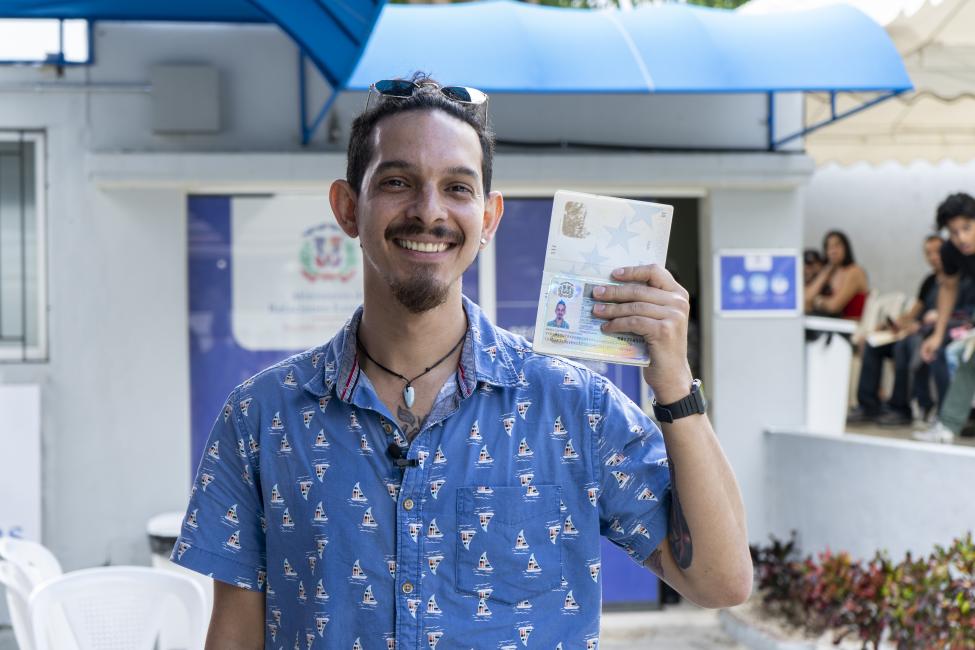

- admin
Nearly 40% of Venezuelans in the Dominican Republic are one step closer to gaining regular status.
The partners of the Interagency Coordination Platform for Refugees and Migrants from Venezuela (R4V) in the Dominican Republic salute the national government for the achievements made during the first year of implementation of the Normalization Plan for Venezuelans (PNV), which seeks to guarantee access to the regularization of Venezuelans living in the country.
To date, more than 40,000 Venezuelans have registered with the PNV and 17,000 have already received their visas (the majority as temporary workers) and thousands of others continue to go through some of the three phases of the plan.
Dominican Republic is the first recipient country of the Venezuelan population in the Caribbean and the eighth in Latin America. Of the more than 5 million people who left Venezuela for neighboring countries in the region, nearly 116,000 chose to seek safety and new opportunities in the Dominican Republic.
Since the start of the PNV in April 2021, the R4V National Platform in the country, co-led by the International Organization for Migration (IOM) and the United Nations High Commissioner for Refugees (UNHCR), in coordination with 15 partner organizations , has accompanied and supported the efforts of the Dominican government to facilitate the access of the Venezuelan population to regular stay, which will translate into better access to basic rights such as health, job opportunities in the formal market and education.
To facilitate the implementation of the PNV, an alliance has been consolidated with eight community organizations of Venezuelans in various cities of the country, which operate the Free Orientation Windows (Ventanillas de Orientación Gratuita), in which information and orientation about the process is provided, and where information is received. documentation of those who apply to the PNV.
- « Previous
- 1
- 2
- 3
- 4
- Next »

